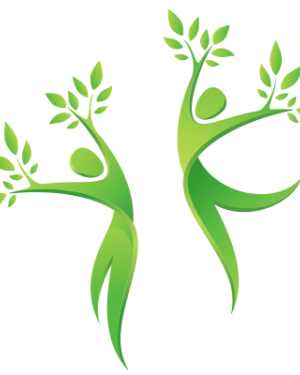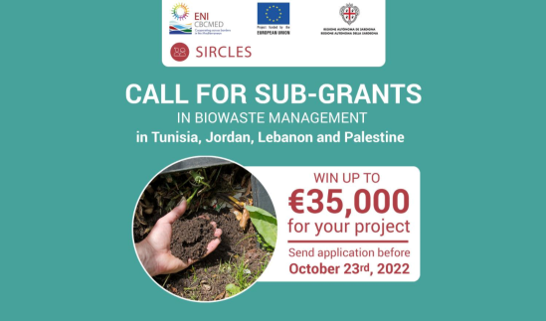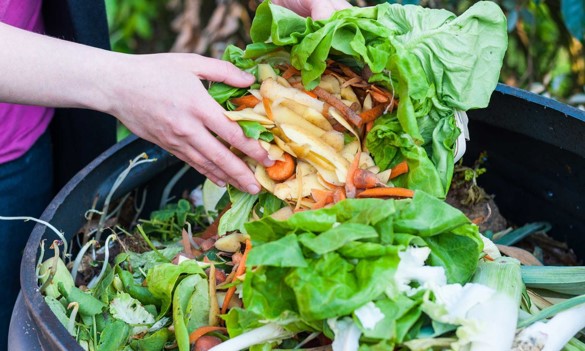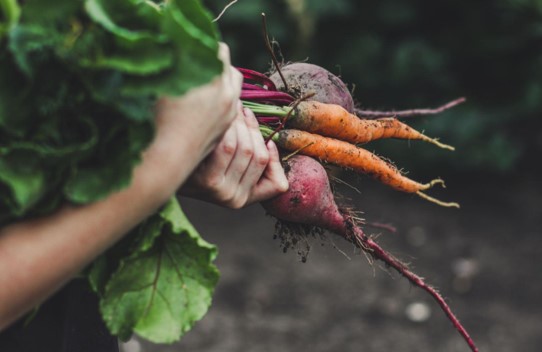As part of the SIRCLES project’s activities to enhance biowaste management in the Mediterranean, 8 applicants from Tunisia, Jordan, Palestine and Lebanon where the project is being implemented, won the “the SIRCLES project’s sub-grant Competition”.
SIRCLES project launched a call for sub-grants with the objective of supporting new or existing companies in Tunisia, Jordan, Palestine and Lebanon following a circular economy business model in the field of biowaste management.
The objective of the competition is to contribute to increase green employment opportunities, especially for vulnerable social groups/groups at risk of social exclusion (i.e., NEET and women) and consequently create green jobs by involving the most vulnerable sectors of the population and supporting environmental sustainability.
The eligibility criteria were that the applicants had to be a legally constituted micro, small and medium enterprise, a registered home-based business (local community) or an individual (legal person) involved in the biowaste sector in Tunisia, Jordan, Palestine and Lebanon.
The sub-grant winner from Palestine is Biet Al Maqudes Agricultural Cooperative Association. From Tunisia are :Wallada Composte, Vers Vert and Heal land. From Jordan VermiJO and Mushroom House. 2 applicants will work biowaste management projects in Lebanon and they are Htree and The Ground.
The winner project in Palestine will be implemented in Beit Surik village in Jerusalem. This project mainly focuses on applying circular economy practices to the biowaste sector, where a 6000m2 land in the targeted area will be used for the following two main approaches: Building a composting unit to produce compost from the collected agricultural waste from nearby farms and villages, as well as cultivating various types of organic fruits and vegetables in the targeted land and sell it to the local market. The project also holds a social aspect where a number of vulnerable group individuals (NEETs and women) will be hired to work on the project’s activities.
Due to high rates of youth unemployment, in particular NEETs (Not in Education, Employment or Training) and women, the Mediterranean basin faces economic and social challenges that are not specific to one country, but rather impact all Mediterranean countries. SIRCLES partners want to explore new employment opportunities by applying the circular economy applied to the biowaste sector in Spain, Greece, Palestine, Jordan, Lebanon, Tunisia and Italy. The project mainly focuses on developing new capacities oriented to business development and separation, collection, composting and agriculture processes.

Areas of work
HWE works closely with Newcastle University (UK) and many other international institutions and funding agencies such as UNESCO, ESCWA, CEDARE, UNU, USAID, DFID, AFD, GTZ, GWP, EUWI, JICA, ACSAD, BGR, EU, etc.

Main Goals
HWE offers a wide variety of services in water, sanitation and environmental engineering and science from the needs identification stage to the elaboration of tender documents, supervision of works and technical assistance.








